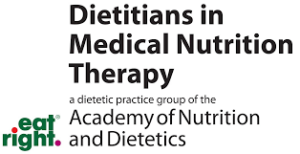MASLD and lifestyle changes:
Health-promoting habits for weight management
The way we eat and physical activity are important for weight management and overall health. If you have metabolic dysfunction-associated steatotic liver disease (MASLD), they’re especially important. MASLD was formerly known as nonalcoholic fatty liver disease (NAFLD).
For people with MASLD, improving daily health habits, such as balanced nutrition and regular movement, can help reduce inflammation (swelling) and the amount of fat in the liver, which are linked to MASLD. If you’re trying to manage your weight:
- Aim for gradual weight loss (about ½ – 2 pounds per week). Avoid crash dieting or fasting.
- Focus on daily health-promoting habits.
- Continue to eat high-fiber, nutritious foods (like fruits and vegetables) even if you are taking weight management medications.
Nutrition
Nutrition plays a key role in supporting your liver and overall health. Here are some tips and strategies that can help.
Use MyPlate to plan healthy, well-balanced meals.
When you’re making a meal, try to include:
- ½ plate non-starchy veggies (like spinach, broccoli, or peppers).
- ¼ plate lean protein (like lean cuts of red meat, chicken, seafood, or tofu).
- ¼ plate whole grains, fruits, or starchy vegetables (like potatoes, corn, peas, or beans).
Reduce added sugar.
Some foods, like fruit, naturally have sugar. Many foods and drinks have added sugar— like sodas, candies, and desserts. Added sugars can also be found in processed foods that you wouldn’t expect, like salad dressings, condiments, pasta sauce, breads, and cereals. When you’re choosing food:
- Read the nutrition label to find out how much added sugar there is. It’s listed below the total sugar.
- Limit added sugar to less than 36 grams, or 9 teaspoons, per day (for men) or 24 grams, 0r 6 teaspoons, per day (for women).
- Consider drinks without added sugar — like plain water, sparkling water, unsweetened tea, or coffee. One 12-ounce can of soda can have 39 grams of sugar.
- Choose foods or drinks with high fructose corn syrup less often.
Limit the fat in your diet.
- Choose fried foods less often and eat smaller portions. You may try swapping out high-fat dairy products for nonfat or low-fat options and choosing plant-based proteins (like beans).
- Limit saturated fat to about 7-10% of your total calorie intake. Saturated fat is in butter, fatty meats, processed meats, and dairy products.
- Reduce the amount of trans fat you eat. Trans fat is in margarine or foods with partially hydrogenated oil.
- Try to eat mostly unsaturated fat, which is in nuts, seeds, avocados, fatty fish, and olive oil.
Drink less alcohol.
- If you have MASLD, experts recommend that you do not drink.
- If you choose to drink, limit yourself to 1 drink per day.
- One drink equals 12 ounces of beer, 8-9 ounces of malt liquor, 5 ounces of wine, or 1.5 ounces of hard liquor.
Try the Mediterranean approach.
High-fat, high-protein, and low-carb diets, like keto or paleo, have been popular recently. But it’s important to know that these diets have not been proven to work for long-term weight loss. Also, a high-fat diet can increase liver enzymes/fatty liver and/or cholesterol levels. This can make MASLD worse.
If finding a new way of eating is important to you, the Mediterranean diet is the best approach for overall health and a range of health issues, including MASLD. It focuses on:
- Fruits and vegetables (at least 5 servings per day, such as 3 vegetables and 2 fruits).
- Lean proteins (like chicken, fish, eggs, beans, and lentils), low-fat dairy products, and healthy fats (like nuts, seeds, avocados, and olive oil).
- More whole grains (like whole wheat bread or brown rice) and fewer refined grains (like white bread or white rice).
- More whole foods (like fruits, vegetables, and nuts that are found in nature) and fewer processed foods (like chips, sodas, or snack bars) overall.
Physical activity
The U.S. Centers for Disease Control and Prevention recommend at least 150 minutes, or 2 ½ hours, of moderate intensity activity every week. That’s 30 minutes a day, 5 days a week. During moderate intensity exercise, you can still talk, but you can’t sing because you’re breathing faster than usual. Here are some tips to help you work toward that goal:
- Try activities you enjoy like gardening, walking, biking, water aerobics, and tennis.
- Do what works for your schedule and lifestyle. For instance, if it’s easier to fit in 2 to 3 10-minute walks each day rather than one longer one, that’s fine.
- Move in ways that feel good to your body and fit your lifestyle. Every little bit of movement helps and supports your overall health.
Written by

Lorraine Bonkowski, RDN, and Lauren Cornell, MS, RDN
Reviewed by DIGID Workgroup members ©June 2022
REVIEWED AND UPDATED BY
Pooja Singhal, MD, AGAF, gastroenterologist, hepatologist, and obesity medicine specialist at Oklahoma Gastro Health and Wellness
Amy Stewart, CRNP, Capital Digestive Care, Washington, DC
Melaine Smith, patient advocate
This program is supported by an independent grant from Novo Nordisk.
Updated November 2025

